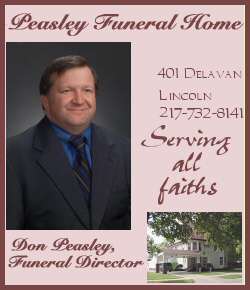|
"It's unthinkable that any business would exploit people's
vulnerability and use it to cheat them out of their most valuable
asset," Blagojevich said. "Not only is it appalling from a moral
standpoint, but it's illegal. For any lender out there who might
think they can get away with that kind of fraud, let this regulatory
action serve as a reminder that we will not tolerate violations of
our consumer protection laws."
In a series of complaints filed last week, the Illinois
Department of Financial and Professional Regulation charged that
Mutual Trust, Charles White and seven title insurance agencies
worked together to defraud unwary homeowners. Each of these entities
has the right to an administrative hearing on the charges before the
department's actions are final.
Following the governor's direction to aggressively enforce
consumer protections, the Illinois Department of Financial and
Professional Regulation last week
issued an emergency suspension of the loan originator registration
of Charles T. White Jr. and revoked the license of Mutual Trust
Funding Corporation. The department shut down seven title insurance
agencies being charged with complicity in the operation.

The Department of Financial and Professional Regulation alleged
that in his capacity as a loan originator at Mutual Trust, Charles
White approached homeowners facing imminent foreclosure and offered
to find an investor who would borrow the money from Mutual Trust to
purchase the property prior to foreclosure. Homeowners were told the
new investor would then lease the home back to them while they
attempted to regain their financial footing. They were promised that
the new investor would repay the delinquent mortgage account and
eventually resell the property back to them.
The Department of Financial and Professional Regulation found
that instead of keeping the promise to repay delinquent mortgages
and allow the original homeowners to repurchase their properties, up
to $1.5 million of the loans arranged by Charles White through
Mutual Trust, which should have been paid to the original lenders
and previous owners, were diverted to a real estate management
company called Eyes Have Not Seen, owned by White.
Further, documents detailing disbursements to previous lenders
and current owners, which should have been notarized and filed with
appropriate state, federal and financial offices, had been tampered
with to show that White was the new owner, through his company Eyes
Have Not Seen.
These fraudulent transactions could not have been completed and
the money could not have been siphoned to White's company without
the explicit and active participation of the seven title agencies
closed earlier last week. All seven of the title agencies are owned
in part by Christy Jepson or Patricia Jepson. The companies are All
American Title Agency, EJF Title Agency, Palatine Title Agency,
Popular Title Agency, Senior Title Agency, Skyline Title Agency LLC
and Title Zone.
The Illinois Department of Financial and Professional Regulation
also charged that White failed to disclose to his customers that he
maintained a financial interest in Title Zone, one of the seven
interconnected title agencies shut down earlier last week. Elnora
White, grandmother of Charles White, is a 30 percent owner of Title
Zone, and All American Title Agency owns the remaining 70 percent of
Title Zone. Charles White is the executor of Elnora White's estate.
Additionally, the department found that Charles White used these
companies exclusively when closing mortgages relating to his
"rescue" transactions.
"Illinois consumers have the right to know that when they do
business with companies licensed by our state, they will receive the
best possible service by ethical and appropriately trained
professionals," said Dean Martinez, secretary of the Department of
Financial and Professional Regulation. "We will use all the tools
available to us to discipline companies which violate the laws and
regulations designed to protect Illinois homebuyers and help
homeowners retain their properties."
The Department of Financial and Professional Regulation
recommends that homeowners in financial difficulty should first talk
to their mortgage lender to explain the situation and see if the
loan can be restructured or refinanced. If the lender is not
responsive, an owner should consider selling the house or engaging
the services of a reputable real estate firm.
[to top of second column] |
 Regardless of the circumstances for selling or refinancing a
home, it is extremely important that homeowners:
-
Read everything
before signing and get all "promises" in writing. Verify all the
figures at the closing for accuracy and completeness. Some
schemers will offer to complete paperwork for the homeowner or
ask that he or she sign a stack of documents, supposedly to
secure a new mortgage. Victims later learn they signed a
quit-claim deed to their home.
-
Be wary if a
foreclosure "rescuer" or mortgage "broker" discourages the
homeowner from contacting the mortgage company or an attorney.
-
Never sign a contract
under pressure, and never sign away ownership of property.
Remember, signing over the property deed to someone else does
not necessarily relieve the original owner of his or her
obligation to repay the loan.
-
Ask a trusted family
member, attorney or a financial professional to review paperwork
before signing.
Copies of the complaints filed by the Department of Financial and
Professional Regulation against the title companies, residential
mortgage broker and loan originator are available at
www.idfpr.com. Consumers with
questions can contact Harry Stirmell, supervisor of the Title
Insurance Section, at 217-558-7009.
Last May, the governor took action to protect vulnerable
homeowners from fraudulent actions by unscrupulous mortgage rescue
firms. The governor signed legislation to give homeowners new rights
when dealing with companies that offer financial assistance to help
them save their homes from foreclosure.
The legislation guarantees that homeowners will receive a
substantial portion of their equity in the home from the companies,
creates new disclosure requirements from mortgage rescue companies
and guarantees that the homeowner will receive a substantial portion
of the equity in the home.
Throughout his administration, Blagojevich has taken numerous
other actions to assist homebuyers and protect consumers.
Reducing the number of high-risk home loans -- In August
2003, the governor signed the High Risk Home Loan Act to protect
consumers from predatory mortgage lending practices. As a result of
the act, the state has seen both a reduction in the number of
high-risk home loans and a change in lenders' business practices so
that lenders are no longer offering high-risk loans as defined in
the act.
Protecting homebuyers in at-risk communities from predatory
lenders -- In July 2005, Blagojevich signed into law
House Bill 4050, which provides borrowers with critical
information on home loans and helps state regulators and law
enforcement track and crack down on dishonest lenders.
Regulating the payday loan industry -- In June 2005, the
governor signed into law the Payday Loan Reform Act, which for the
first time regulates the payday loan industry in Illinois and also
strengthens protections to consumers. Among its provisions, the
groundbreaking legislation limits the interest that can be charged
for each loan to $15.50 per $100, sets caps on total loan amounts
and prevents borrowers from having more than two loans at a time.
Giving homebuyers easy access to accurate information about their
properties -- In August 2005, Blagojevich signed three bills to
help homebuyers and homeowners obtain access to accurate and
important information about their properties:
House Bill 1428, which requires lenders to notify homebuyers of
accurate and timely property tax payment from the buyer's escrow
account;
House Bill 2462, which requires property tax exemption
information to be included on the seller's transfer declaration; and
House Bill 2594, which requires home repair contracts to
increase consumer awareness of contract clauses that waive the
homeowner's right to trial by jury for repair disputes.
Protecting homebuyers from discrimination -- In 2005,
Blagojevich announced a fair housing program to help protect
homebuyers against discrimination in housing. The Illinois
Department of Human Rights and other agencies conduct training
seminars around the state to inform homebuyers, tenants, landlords,
property owners, advertisers, housing advocates and community
organizations about Illinois' anti-discrimination laws.
Helping first-time homebuyers: In 2005, Blagojevich launched
the I-Loan mortgage program, providing one more option for low- and
moderate-income residents who want to purchase their first home, by
offering an interest rate that is approximately 0.5 percent below
the market rate.
[News release from the governor's
office] |